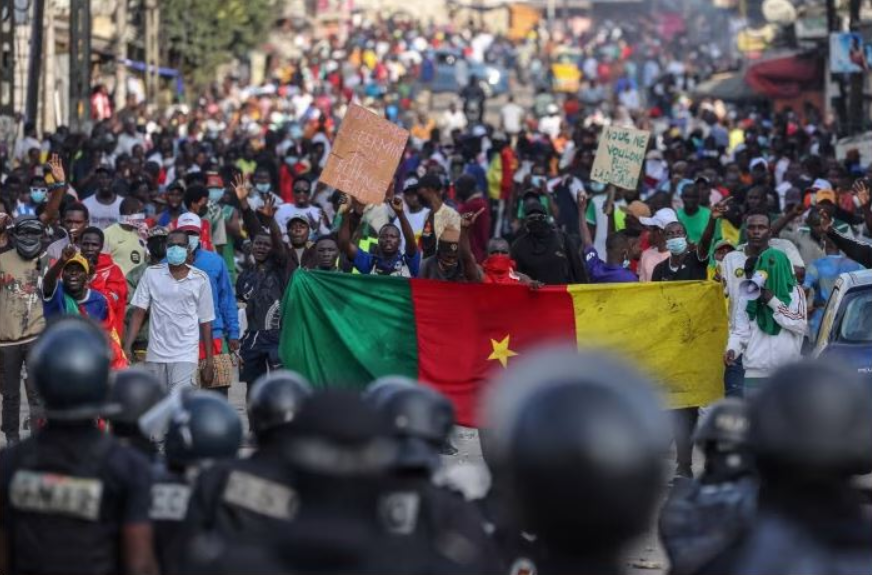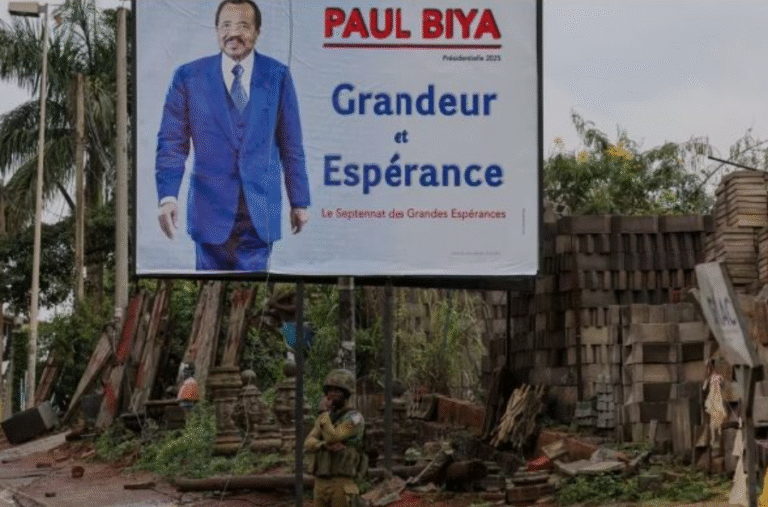Cameroon’s president won yet another term on Monday, giving the world’s oldest leader seven more years in office despite allegations of electoral fraud from the opposition.
Paul Biya, 92, who has ruled the central African nation since 1982, was declared the victor with 53.7 per cent of the vote. Opposition candidate Issa Tchiroma Bakary, an influential powerbroker from the country’s north and a former Biya ally, received 35.2 per cent of the vote, according to the Constitutional Council.
Cameroon had seen rising instability ahead of the announcement as authorities cracked down on dissent, with demonstrators defying a ban to protest and more than 20 leading members of the opposition arrested. Security forces killed at least four people on Sunday, and arrested more than 100 in Douala, the country’s economic capital and largest city.
Large numbers of security forces have been deployed in the capital, Yaoundé, and other major cities as protesters are expected to line the streets of major cities across the country to reject the results.
Tchiroma had declared himself the winner of the election days after the October 12 polls, citing unofficial results collated by his party that he said showed a “landslide victory” over Biya, who will be nearly 100 years old at the end of his eighth term.
Tchiroma was a Biya ally for two decades, holding cabinet positions including as the government’s spin-doctor, before breaking with the longtime leader in June. The comparatively sprightly 79-year-old said at the time he was responding to yearning for change from the country’s youth.
“Biya now has a notably shaky mandate given many of his own citizens don’t believe he won the election,’’ Murithi Mutiga, Africa programme director at International Crisis Group, said. He called on Biya to urgently start a national mediation with politicians, faith leaders and external actors to prevent further escalation of violence.
Ambassadors from several EU member states and other Western countries boycotted the announcement at the Yaoundé Conference Centre. Envoys from Russia and Turkey attended.
The Constitutional Council had set the stage for the announcement by rejecting petitions filed before it last week relating to alleged voter intimidation, ballot-stuffing and tampering, and other forms of electoral malpractice
 Tchiroma alleged on Sunday that he had escaped a plot to arrest him. “The only crime I committed was winning the presidential election,” he said in a video posted online, calling on his supporters to “remain vigilant”.
Tchiroma alleged on Sunday that he had escaped a plot to arrest him. “The only crime I committed was winning the presidential election,” he said in a video posted online, calling on his supporters to “remain vigilant”.
In the aftermath of the vote, behind-the-scenes negotiations intensified, with Biya’s camp offering Tchiroma the role of prime minister, according to people familiar with the matter. Tchiroma rejected the offer last week, the people said. Cameroon’s prime minister ostensibly runs the government, but power remains concentrated within Biya’s office.
The unrest in Cameroon comes as another ageing incumbent in the region was on the verge of winning a controversial vote. Ivory Coast’s Alassane Ouattara, 83, is on course for a fourth term after running virtually unopposed, according to early results from the country’s electoral commission. His main rivals, including former Credit Suisse chief executive Tidjane Thiam and former President Laurent Gbagbo, were sidelined by court decisions they alleged were politically motivated.
Ouattara, who has been in power since 2011, ran for office despite his country’s two-term limits for presidents, after arguing that a constitutional amendment in 2016 reset the clock on his tenure. The election was largely peaceful, although it was marred by voter apathy and there were reports of isolated incidents of violence in parts of the country.
Source: Financial Times


